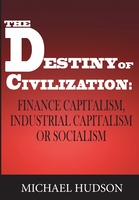by YVES SMITH

Yves here. Below Michael Hudson explains how long-standing the neocon plans to break up Iran have been (as going back to before they were called “neocons”) and why this project has been and still is seen as vital to preserving US dominance.
By Michael Hudson, a research professor of Economics at University of Missouri, Kansas City, and a research associate at the Levy Economics Institute of Bard College. His latest book is The Destiny of Civilization. Originally published at The Democracy Collective
Opponents of the war with Iran say that the war is not in American interests, seeing that does not pose any visible threat to the United States. This appeal to reason misses the neocon logic that has guided U.S. foreign policy for more than a half century, and which is now threatening to engulf the Middle East in the most violent war since Korea. That logic is so aggressive, so repugnant to most people, so much in violation of the basic principles of international law, the United Nations and the U.S. Constitution, that there is an understandable shyness in the authors of this strategy to spell out what is at stake.
What is at stake is the U.S. attempt to control the Middle East and its oil as a buttress of U.S. economic power, and to prevent other countries from moving to create their own autonomy from the U.S.-centered neoliberal order administered by the IMF, World Bank and other international institutions to reinforce U.S. unipolar power.
Around 1974 or 1975 there was much talk of creation a New International Economic Order (NIEO). I was working at the Hudson Institution with Herman Kahn on international finance and trade, and he brought me to sit in on a military strategy discussion of plans being made already at that time to possibly overthrow Iran and break it up into ethnic parts. Herman found the weakest spot to be Baluchistan, on Iran’s northeast border with Pakistan. The Kurds, Tajiks and the Turkic Azerbaijanis are others whose ethnicities were to be played off against each other, giving U.S. diplomacy a key potential client dictatorship to reshape both Iranian and Pakistani political orientation if need be.
Three decades later, by 2003, General Wesley Clark pointed to Iran as being the capstone of seven countries that the United States needed to control in order to dominate the Middle East, starting with Iraq and Syria, Lebanon, Libya, Somalia and Sudan, culminating in Iran.
Fast Forward to Today
Most of the discussion of the geopolitical dynamics of how the international economy is changing is understandably focusing on the attempt by the BRICS and other countries to escape from U.S. control by de-dollarizing their trade and investment. But the most active dynamic reshaping the international economy has been Donald Trump’s whirlwind presidency since January has to lock other countries into a U.S.-centered economy by agreeing not to focus their trade and investment on China, Russia and other states seeking their own autonomy from U.S. control. That is what the war in Iran is all about.
Trump expected that countries would respond to his threat to create tariff chaos in hope of regaining the U.S. market by reaching an agreement not to trade with China and indeed to accept U.S. trade and financial sanctions against it, Russia, Iran and other countries deemed to be a threat to the unipolar U.S. global order. This fight explains the U.S. objective in its current fight with Iran, as well as with Russia and China – and Cuba, Venezuela other countries seeking to restructure their economic policies to recover their independence.
From the view of U.S. strategists, the emergence of China’s industrial socialism poses an existential danger to U.S. unipolar control in providing a model that other countries might seek to join to recover the national sovereignty that has been steadily eroded in recent decades.
The Biden Administration and a host of U.S. Cold Warriors frame the issue as being between democracy (defined as countries supporting U.S. policy as client regimes) and autocracy (seeking national self-reliance from foreign trade and financial dependency. This way of framing the international economy views China as an existential threat to U.S. unipolar domination, and that attitude explains the US/NATO attack on Russia in the Ukraine war of attrition, and most recently the US/Israeli war against Iran threatening to engulf the whole world in U.S.-backed war
The motivation has nothing to do with Iran’s attempt to protect its national sovereignty by developing an atom bomb. The basic problem is that the United States has taken the initiative in trying to pre-empt Iran and other countries from breaking away from dollar hegemony.
Here’s how the neocons spell out the U.S. national interest in overthrowing the Iranian government and introducing a regime change – not necessarily a secular democratic regime change, but perhaps an extension of the ISIS-Al Qaida Syrian Wahabi terrorists.
Naked Capitalism for more
